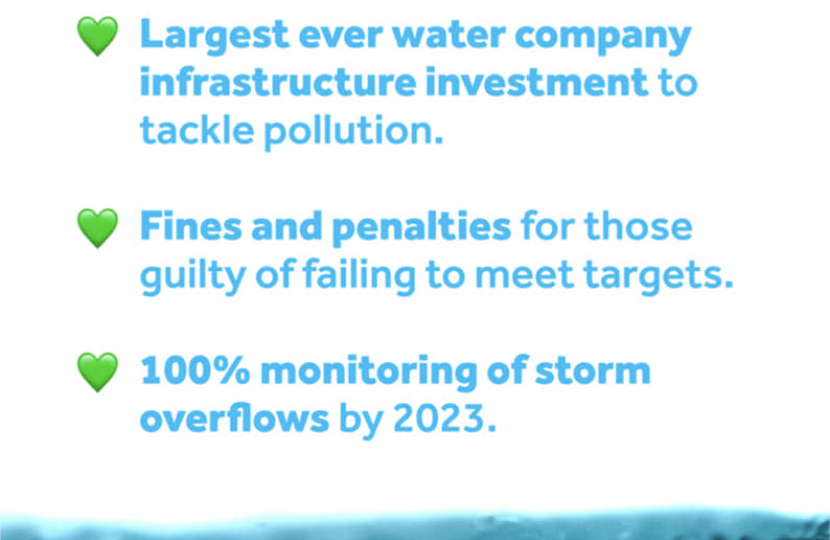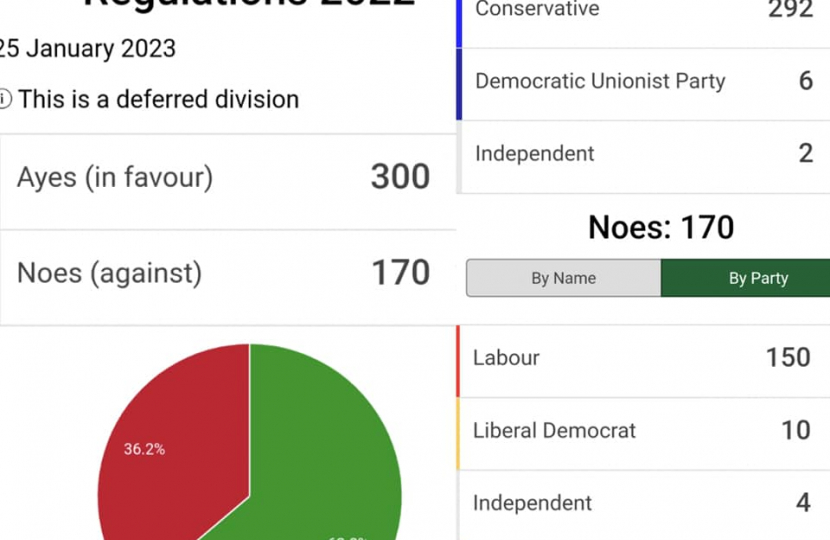Thank you to those who have contacted me about storm overflows. There has been some confusion on social media in recent weeks and months about this subject, and I want to set the record straight as no government has done more to tackle the issue of storm overflow discharges.
Sewage overflows are a result of Victorian plumbing, where pipes for wastewater and surface water were combined. This means when it rains heavily, overflows are a safety valve stopping the water from backing up into your home.
All new pipes are separated, but that leaves 100,000km of combined pipes. That’s enough to go around the Earth two and half times. The only way to stop the use of overflows is to allow it to go into your house, to separate all those pipes, or to build enough capacity to capture all the rain combined with sewage. That would require the equivalent of 40,000 Olympic swimming pools.
In July 2013, a Conservative minister instructed water companies to monitor their sewage overflows for the first time, and since then we have placed new duties on them for all overflows to be monitored. This is why we are now seeing the extent of the problem, and providing transparency to communities so they know what’s going on in their area.
In 2020, the Conservative Government set up the Storm Overflow Taskforce to figure out how to tackle this problem. We also made it clear through our regulators that we expected water companies to prioritise investment in the environment and tackle sewage overflows for the first time. No previous government took these steps to monitor or tackle the problem.
Then, in August 2022, the Conservative Government published the Sewage Overflow Reduction Plan, setting out the largest ever infrastructure programme in water company history. This totals £56 billion investment to tackle sewage overflows. We think this is the right balance to frontload action and protect your bills. Ofwat, the water regulator, carefully scrutinises all investment to make sure you get value for money, including other investments in new supply, support for vulnerable customers and other environmental programmes.
Using our new monitoring, we’re also cracking down on water companies who are using overflows illegally. Since 2015, the Environment Agency have concluded 56 prosecutions against water and sewerage companies securing fines of over £141m. The regulators have recently launched the largest criminal and civil investigations into water company sewage discharges ever, and can fine companies up to 10% of annual turnover. We are looking at ways to increase fines and make them easier for regulators to use. We’re also supporting the work by Ofwat to link dividends and bonuses to environmental performance for the first time.
****January 2023 Votes****
Regarding votes in the House of Commons on this subject in January 2023, I would like to assure you that I did not vote to allow more sewage to go into our rivers.
The use of sewage overflows is completely unacceptable. If we could, we would turn them off tomorrow but I won't lie to you about the scale of the task. What I and my conservative colleagues have done is voted for the first ever plans ever to tackle them. We'll be working with the water companies to eliminate pollution over time and I'm proud we are increasing the monitoring and setting targets into law.
Let me be absolutely clear: I voted AYE for ACTION to tackle pollution from wastewater and agriculture, while most of the opposition voted against.


